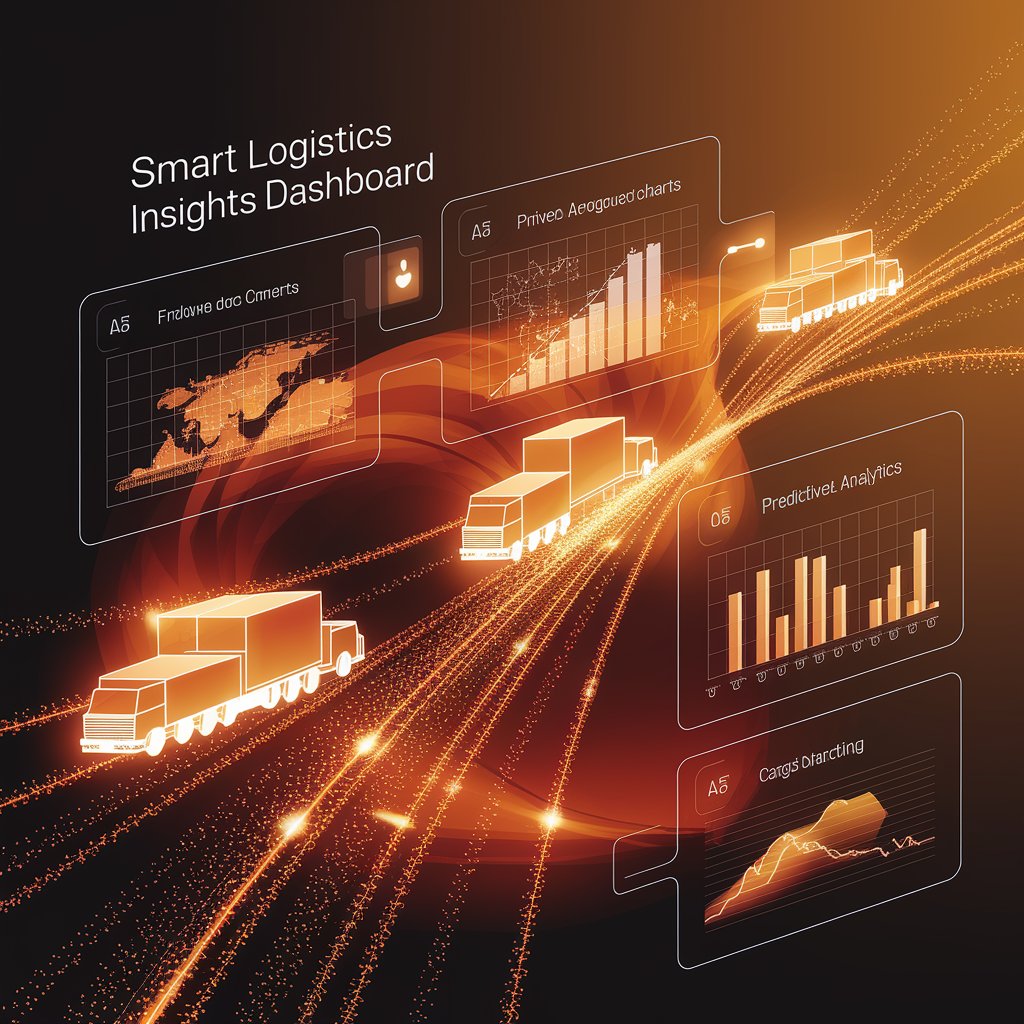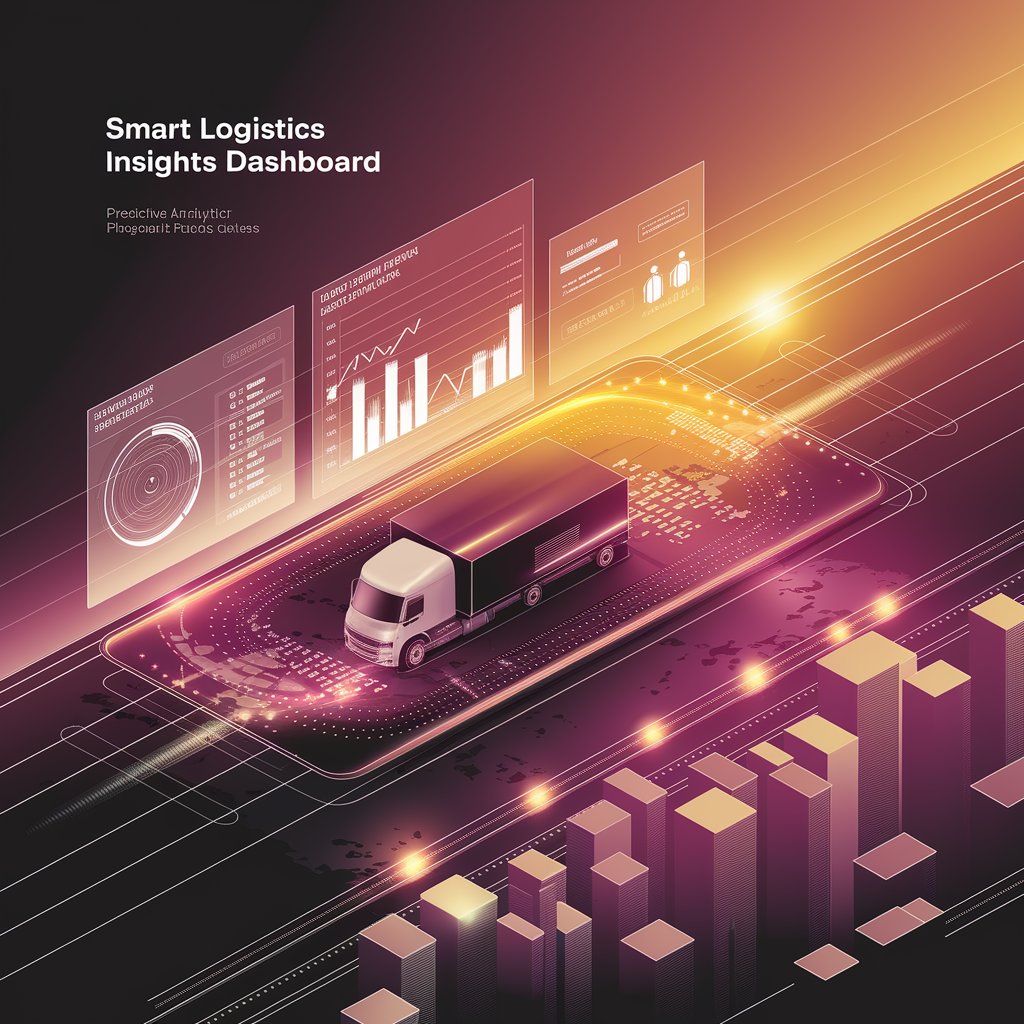Smart Logistics Insights: Driving the Future of Supply Chain Efficiency

Introduction
This is where smart logistics insights come into play. By combining AI, predictive analytics, IoT, and big data, companies can gain real-time visibility into their supply chains, anticipate challenges, and optimize operations at every level.
What Are Smart Logistics Insights?
Smart logistics insights refer to the use of advanced technologies and analytics to extract meaningful, actionable intelligence from supply chain data. Unlike traditional reporting, these insights are predictive, real-time, and integrated across networks, enabling businesses to make smarter decisions faster.
They allow logistics providers, freight forwarders, and shippers to:
- Track shipments in real time.
- Predict demand and optimize inventory.
- Automate manual workflows.
- Improve customer experiences through accurate, timely deliveries.

Key Features of Smart Logistics Insights
- Real-Time Visibility – IoT devices and GPS trackers provide instant updates on cargo movement.
- Predictive Analytics – AI models forecast demand shifts, capacity shortages, and risks.
- Automation – Robotics, RPA, and digital platforms reduce manual errors.
- Data Integration – Seamless flow of data across ERP, TMS, and WMS systems.
- Sustainability Metrics – Track emissions and fuel consumption to meet green logistics goals.
Benefits for Supply Chains 📈
- Operational Efficiency – Optimize routes, reduce idle time, and minimize costs.
- Risk Reduction – Anticipate disruptions like port congestion or weather delays.
- Improved Collaboration – Shared dashboards align carriers, shippers, and 3PLs.
- Enhanced Customer Experience – Provide accurate ETAs and proactive notifications.
- Sustainability – Data-driven insights reduce waste and improve eco-efficiency.

Real-World Applications
- Freight Forwarders: Use AI-driven insights to optimize booking and space allocation.
- Carriers: Leverage predictive models to adjust fleet capacity and reduce empty miles.
- Retail & E-commerce: Improve last-mile delivery with route optimization.
- Cold Chain Logistics: Use IoT sensors to monitor temperature-sensitive shipments.
- Ports & Terminals: Apply predictive analytics to manage congestion and turnaround times.
Challenges in Adopting Smart Logistics
- Data Silos – Fragmented systems prevent full visibility.
- High Implementation Costs – AI and IoT require upfront investment.
- Change Management – Workforce training and cultural adoption are essential.
- Cybersecurity Risks – Connected systems are vulnerable to attacks.

Best Practices for Leveraging Smart Logistics Insights
- Start with Data Quality – Clean, reliable data is the foundation.
- Adopt Scalable Platforms – Choose solutions that grow with your network.
- Integrate Systems – Connect ERP, TMS, WMS, and IoT for seamless data flow.
- Invest in AI & Automation – Use predictive models for accuracy and speed.
- Focus on Sustainability – Apply insights to reduce emissions and energy use.
The Future of Smart Logistics
The next generation of smart logistics insights will be shaped by:
- Digital Twins – Virtual replicas of supply chains to test scenarios before real-world execution.
- Blockchain – Secure, transparent transactions across partners.
- Edge Computing – Faster data processing directly at the source.
- Self-Optimizing Networks – Supply chains that learn and adjust automatically without human intervention.
Conclusion
Smart logistics insights are no longer optional—they’re the foundation of modern supply chains. By adopting AI, real-time data, and predictive analytics, companies gain the ability to anticipate risks, cut costs, and improve customer satisfaction.
In a world defined by uncertainty, the organizations that embrace smart logistics insights will build the most efficient, resilient, and future-ready supply chains.
